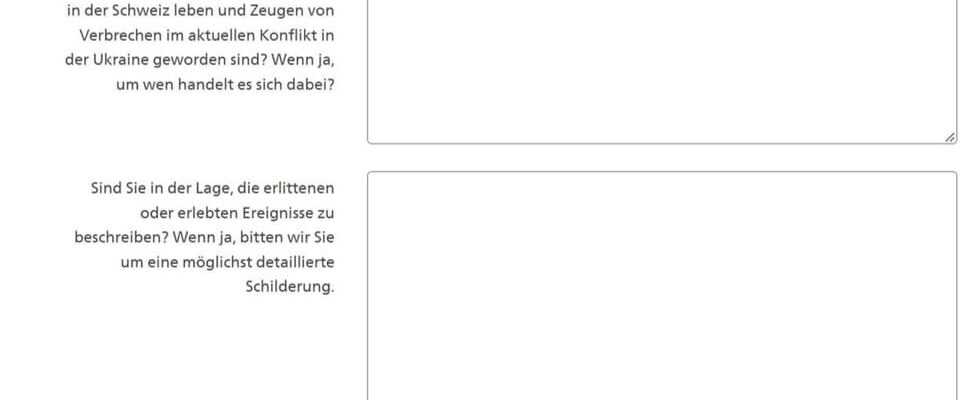contents
What to do in the face of war crimes in Ukraine? The authorities are taking action – so far with little success.
Bucha, Kramatorsk, Mariupol – evidence of war crimes in Ukraine is mounting. Are we doing enough to prevent war crimes? Politicians also struggle with this in the SRF program “Club”.
The most important thing is to support our excellent diplomats.
“The most important thing is to support our excellent diplomats,” says SVP National Councilor Roland Rino Büchel. SP National Councilor Jon Pult says that more and more can be done “in view of the misery that is taking place”, and GLP President Jürg Grossen adds: “I try to set my levers in motion every day.”
With QR codes against war crimes
The Swiss authorities are making a more concrete contribution with the help of an online form: when registering at the migration office, Ukrainian refugees receive an information sheet that asks them to report any war crimes. Strictly speaking, it is an accompanying letter that leads to a non-public website via a QR code.
“The quality of the answers is important to us, which is why the form with the QR code is not published per se, but is only handed out specifically to people who are entering Switzerland seeking protection,” explains Berina Repesa, spokeswoman for the Federal Police Office (Fedpole).
Legend:
“Did you suffer crimes in the current conflict in Ukraine?”, or: “Are you able to describe the events you suffered or experienced?” is in the form on the said website.
zvg SEM/Fedpol
During the regular asylum procedures, a survey is carried out by the employees of the migration office. Since these surveys are not required for protection status S, the form is used instead.
Sobering record
In view of the pictures and reports from the Ukraine, one would expect that many reports from the more than 36,000 refugees to Switzerland have already been received. But the current balance (April 19) is zero.
“As of today, we have not received any reports,” says Fedpol media spokeswoman Berina Repesa. There are two possible explanations for this.
To date, we have not received any reports of war crimes.
Firstly, the Ukrainian government has also set up such a registration office, which is at most more accessible to Ukrainians. And secondly, it might just be too early for that. The majority of the refugees who are already here fled at the very beginning of the conflict, when there were no reports of war crimes, Berina Repesa explains.
Collecting for The Hague
But what happens to such a report if it reaches the authorities? Fedpol evaluates these together with a translator and, if there are any queries, contacts the person who reported the alleged crime. Fedpol exchanges information gained from this with national and international partners, such as the European police office Europol or Eurojust, the European Union agency for judicial cooperation in criminal matters.
The evidence could become important at a later date, for example when the perpetrators are tried before the International Criminal Court.
